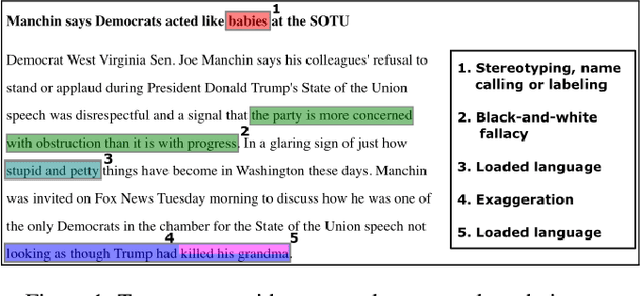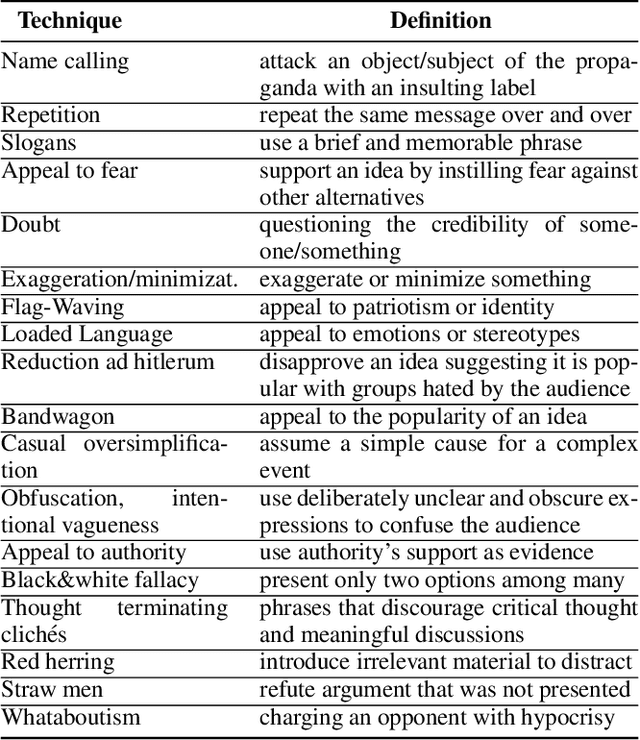A Survey on Computational Propaganda Detection
Paper and Code
Jul 15, 2020


Propaganda campaigns aim at influencing people's mindset with the purpose of advancing a specific agenda. They exploit the anonymity of the Internet, the micro-profiling ability of social networks, and the ease of automatically creating and managing coordinated networks of accounts, to reach millions of social network users with persuasive messages, specifically targeted to topics each individual user is sensitive to, and ultimately influencing the outcome on a targeted issue. In this survey, we review the state of the art on computational propaganda detection from the perspective of Natural Language Processing and Network Analysis, arguing about the need for combined efforts between these communities. We further discuss current challenges and future research directions.
 Add to Chrome
Add to Chrome Add to Firefox
Add to Firefox Add to Edge
Add to Edge